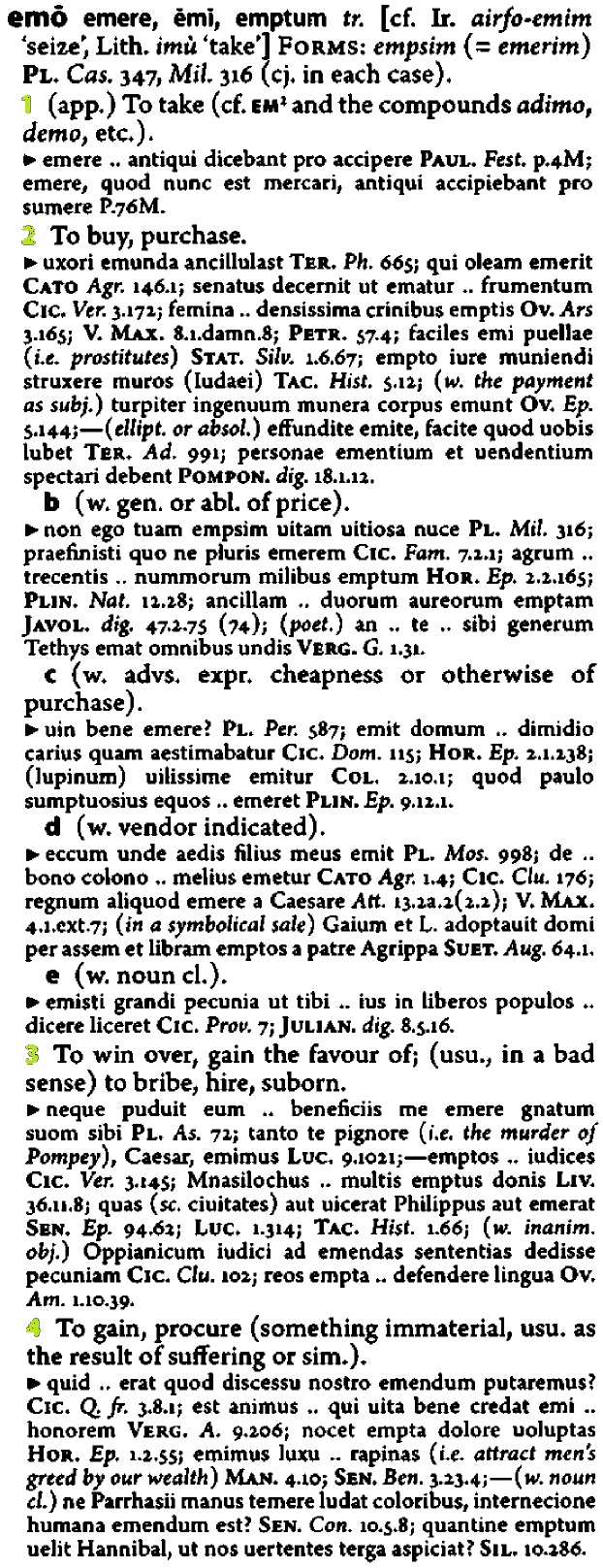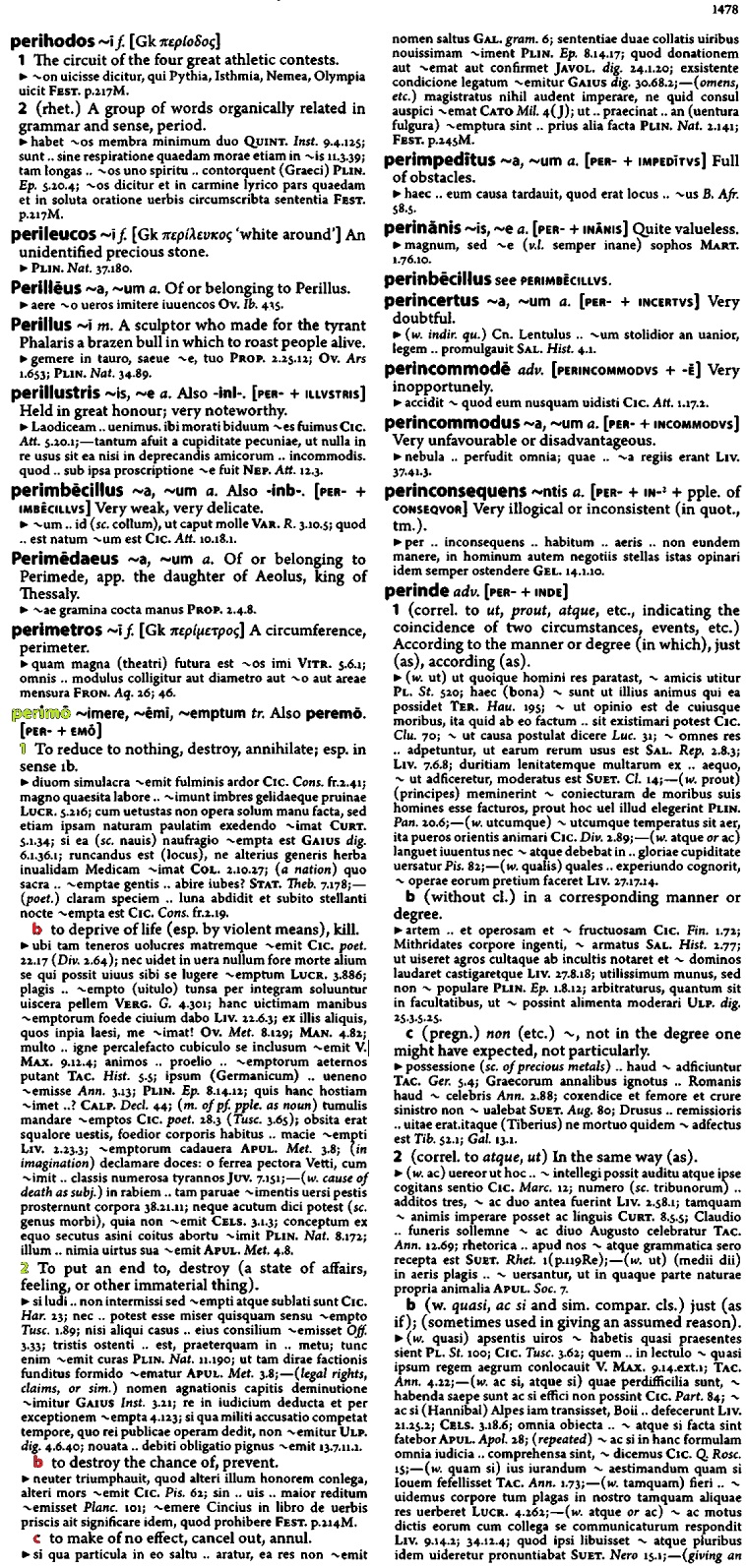Post History
As you can read below, emō meant to take, buy, gain, procure. But perimō meant to destroy and annihilate. Plainly, their meanings differ! So why was perimō formed from emō and compounded with per-?...
#2: Post edited
As you can see below, _emō_ meant to take, buy, gain, procure. But _perimo_ meant to destroy and annihilate. Plainly, their meanings differ! So why was _perimo_ formed from _emō_ and compounded with _per-_? How does _emō_ semantically appertain to _perimo_'s meanings?- >### peremptory [16]
- >
- >_Peremptory_ comes via Anglo-
- Norman _peremptorie_ from Latin _peremptōrius_.
- This meant ‘destructive’, and was derived from
- _perimere_ ‘take away completely’, a compound
- verb formed from the prefix per- ‘completely’
- and _emere_ ‘obtain’ (source of English _example,
- exempt, prompt, etc_). By extension it was used
- for ‘taking away all possibility of debate’, and
- hence ‘decisive’.
- _Word Origins_ (2005 2e) by John Ayto. p 373 Left column.
- >
- _Oxford Latin Dictionary_ (2012 2 ed), p 665.
- 
- _Oxford Latin Dictionary_ (2012 2 ed), p 1478.
- As you can read below, _emō_ meant to take, buy, gain, procure. But _perimō_ meant to destroy and annihilate. Plainly, their meanings differ! So why was _perimō_ formed from _emō_ and compounded with _per-_? How does _emō_ semantically appertain to _perimō_'s meanings?
- >### peremptory [16]
- >
- >_Peremptory_ comes via Anglo-
- Norman _peremptorie_ from Latin _peremptōrius_.
- This meant ‘destructive’, and was derived from
- _perimere_ ‘take away completely’, a compound
- verb formed from the prefix per- ‘completely’
- and _emere_ ‘obtain’ (source of English _example,
- exempt, prompt, etc_). By extension it was used
- for ‘taking away all possibility of debate’, and
- hence ‘decisive’.
- _Word Origins_ (2005 2e) by John Ayto. p 373 Left column.
- >
- _Oxford Latin Dictionary_ (2012 2 ed), p 665.
- 
- _Oxford Latin Dictionary_ (2012 2 ed), p 1478.
#1: Initial revision
How does taking, buying, procuring (emō) semantically appertain to destruction, annihilation (perimō)?
As you can see below, _emō_ meant to take, buy, gain, procure. But _perimo_ meant to destroy and annihilate. Plainly, their meanings differ! So why was _perimo_ formed from _emō_ and compounded with _per-_? How does _emō_ semantically appertain to _perimo_'s meanings? >### peremptory [16] > >_Peremptory_ comes via Anglo- Norman _peremptorie_ from Latin _peremptōrius_. This meant ‘destructive’, and was derived from _perimere_ ‘take away completely’, a compound verb formed from the prefix per- ‘completely’ and _emere_ ‘obtain’ (source of English _example, exempt, prompt, etc_). By extension it was used for ‘taking away all possibility of debate’, and hence ‘decisive’. _Word Origins_ (2005 2e) by John Ayto. p 373 Left column. > _Oxford Latin Dictionary_ (2012 2 ed), p 665.  _Oxford Latin Dictionary_ (2012 2 ed), p 1478.


















